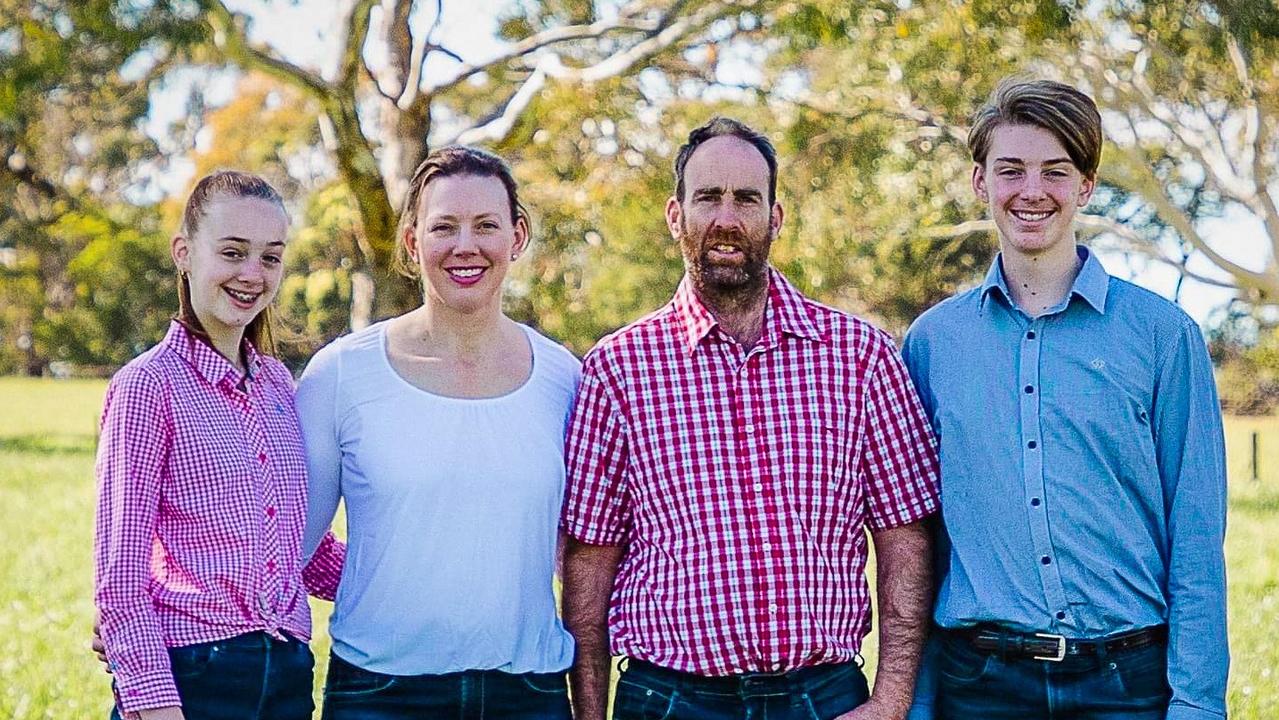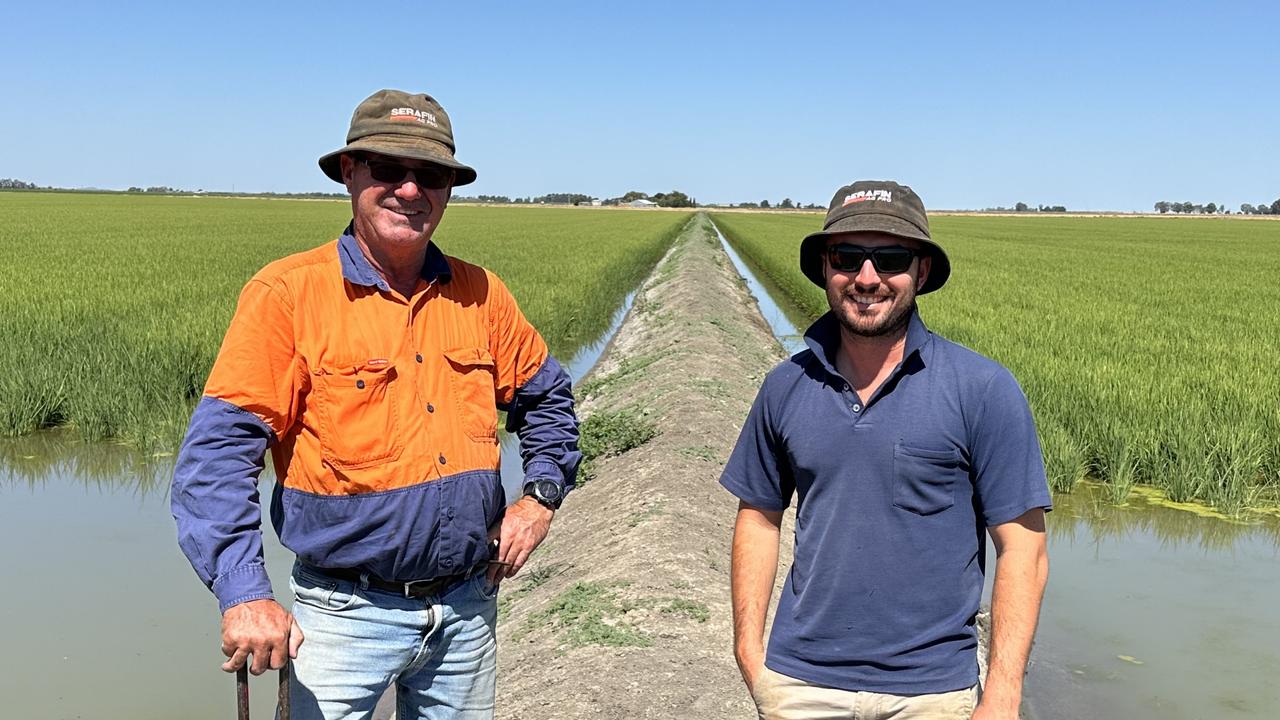The rebellious spirit of Australian agave
Queensland might seem a world away from the agave fields of Mexico. But for this pioneering distiller, it’s the perfect place to forge a new kind of Australian plantation.
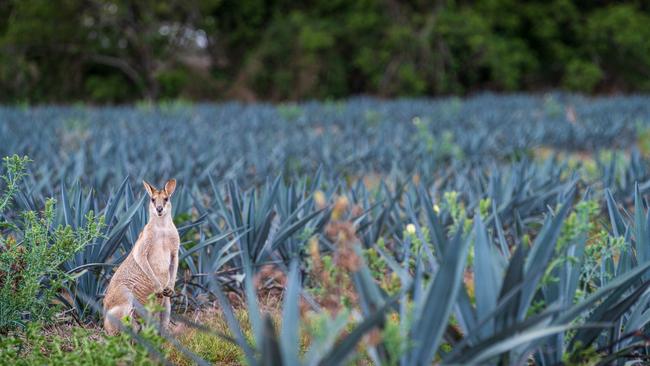
Those who have settled across remote areas of Australia have always had something of a rebellious spirit about them, and a desire to push the bounds of what can be achieved.
And Trent Fraser of Bowen, near the Whitsundays in Queensland, is no exception.
So his idea to grow an iconic Mexican plant on the opposite side of the world, and create an Australian spirit, might seem like a reach.
But as Top Shelf Group’s chief executive, Trent, pioneered the act of growing agave plants – specifically Blue Weber Agave – outside of North and South America, with the aim to produce a distinctly Australian spirit as vibrant and unique as the landscape itself, while growing the iconic cactus plants in a distinctly Australian way.
After spending a number of years working in the heartland of agave, Mexico, Trent spearheaded the launch of the Australian Agave Project, from which the product Act of Treason was born.
“Exactly 20 degrees south of the equator is Bowen, Queensland. When I stepped off the plane back into Bowen, I felt like I was back in Guadalajara (Mexico), it’s the exact same medium temperature, same medium rainfall and the exact same humidity,” he said.
“It’s the ideal growing conditions for agave. It loves an abundance of sunshine, hence why we’ve located the farm up there.
“The founding father of agave is really Mexico. It’s been around for hundreds and hundreds of years,” Trent said.
“It’s a much loved and adored spirit there, and it’s also a cultural thing. We decided in 2018 to put down roots in the northern parts of Queensland, right into Bowen.”
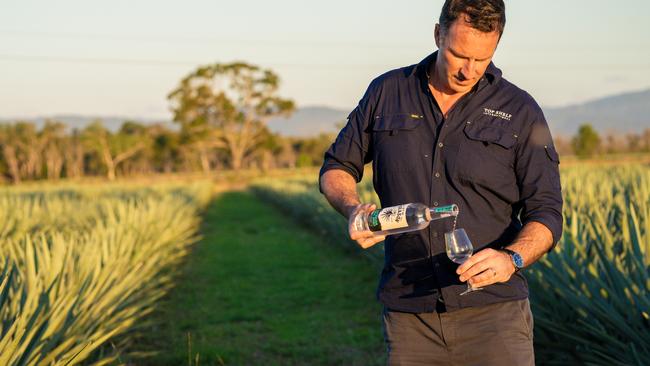
SOUTH OF THE BORDER
For the layman, agave is to Tequila what sparkling wine is to Champagne: it is a product and a variety that speaks to provenance and place.
Tequila can only be called as such if it produced in Tequila, Mexico, while other spirits such as Act of Treason are an agave spirit.
The first agave plants were sown in 2018, with plantation numbers slowly built up.
After a number of trials in late 2023, the first harvest and distillation for commercial sale was in January this year.
The Top Shelf Group has planted 400ha as an agave plantation, with more than 600,000 plants.
“Which would certainly make it the largest farm outside of Mexico,” Trent said.
“We didn’t get to 620,000 plants yesterday, that takes a long time. You’re looking at up to 50,000 a quarter going in, and going from there progressively.
With wine, a vintage is produced every year.
But agave is a little different, Trent said.
Once a plant is in the ground, it can take up to seven years before harvest is even attempted. “This is an incredibly resilient plant, it can survive in a lot of trying conditions,” he said.
“But if you do give it the love, the care and the nurture, it does extremely well.
“We’re harvesting the oldest, most mature plants that first went into the ground, because they have the most exceptional sugars,” Trent said.
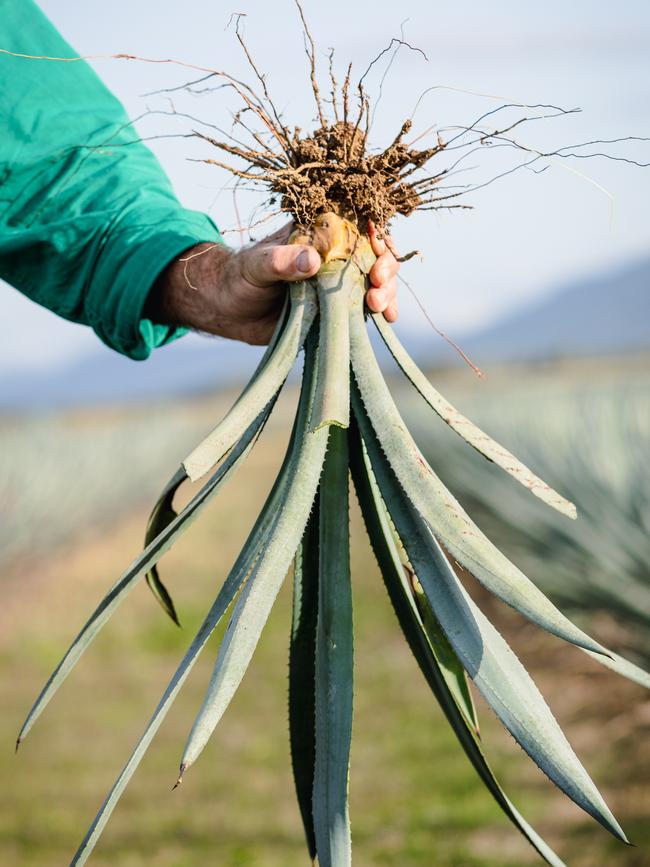
PLANT FOCUS
A year on the farm looks similar to a vineyard, Trent said, in that nine months of the year is dedicated to management and maintenance of the plantation, before harvest.
“The nine months we spend focused on maintenance is ensuring the plants are in good health, and being well-cared for,” he said.
“Right now, we’re coming into the rainy season. When it’s a traditional Aussie summer, we have high rain, which is perfect for the growing conditions, but it’s not great to work with as a functioning distillery. So the plants are thriving, but it’s not ideal to be harvesting in that period when there’s bucketing rain.”
Rainfall from January to October this year is lower than the historical average, sitting at 810mm for the period, compared to the historical average of 1191mm.
Preparing the soil on the property – which had once been a vegetable farm – was an “immense” task.
Soil type varies across the property, and includes sandy soil, tea tree, alluvial, clay loam, and clay.
Weeding and slashing is an ongoing job, along with mulching, an essential piece of maintenance work needed to ensure the agave is not fighting for irrigation water.
There’s no set season for harvesting agave: rather, the plantation needs to be established and reach maturation, before successive picking of the plants can take place.
“It’s all about timing and having precision around which plants you should be selecting for harvesting. It’s unlike wine, which is harvested every year … we’re focusing specifically on the plants that have exceptional sugars,” Trent said.
He said the actual act of harvesting can be tricky, given the spiky nature of the plants.
“We’re working almost with dangerous echidnas, with really big spikes, then we transport them to an industrial cooking oven and go through the distillation process,” Trent said.
“The interesting and beautiful thing about this plant is it’s quite remarkable just how generous it is. They have these things called pups, the mother plant will shoot off pups, it could be as many as five or six, or even eight, in its lifespan.
“When we harvest a plant to make liquor from it, that’s the end of its life cycle, it’s gone, and it’s mulched. However, in its time it’s shot off several siblings that you can graft and replant. From that perspective, we’ve got continuity of baby plants coming online, and that’s what we’re working to, this replant and regenerate over the course of time.”
A total of four full-time employees work across the plantation, along with a number of casual workers assisting with plant harvest when needed.
From there, the process from harvest to distillation then bottling of finished product is about one month, including leaving the agave to rest.
Agave distilled from the plantation is enough to service demand, with a limited launch of Act of Treason at present.
“We don’t have a tap that we can turn on and make indefinitely more,” Trent said.
“I learned the hard way down in Mexico that you can’t just turn on a tap like you can with other spirits. This thing is several years in the making, and time in the ground. You need to have a lens that’s several years out. I wish I had a crystal ball, but none of us do. You’ve got to be pragmatic in terms of the way you plan for that. There’s an element of harvesting, along with replanting.
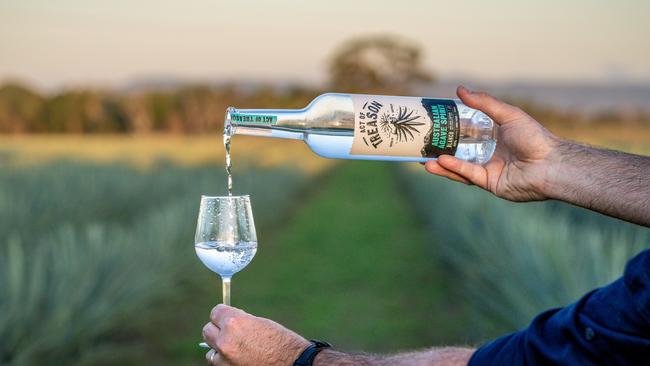
A TOAST TO THE FUTURE
Act of Treason has a strong focus on environmental sustainability, and is working to sequester carbon in the soil as part of the operation.
“We’re doing a lot in terms of protection of our own soil and land management,” Trent said.
“Rainfall we capture in an enormous dam so we’re able to use fresh rain water, not only for irrigation but for other uses in the distillery as well. That’s key to us … the more you put into your land and soil, without question, it benefits the plants or whatever you’re trying to grow.”
Other innovation investments include using upcycled shipping containers, geo tagged plants, the use of energy saving sub condensers, gravity-fed water management, a double copper pot distillation system and a repurposed winepress.
Trent has ambitions to scale up the enterprise in future, with inquiries for Act of Treason from the United States, Japan, and Europe.
“Which is awesome, but we’re not going to be able to do that for a little bit of time yet. How do we forecast against demand, versus what we’re able to take out of the ground itself.”
“We’re going into a very buoyant time, and it’s a dynamic category where in America, where I lived for 20 years, it was very common for people to just be sipping tequila, neat. For the younger generation they’re engaging with the spirit in a more refined and discerning sort of experience, and that’s key. We’ve got a huge tailwind behind us, and we’re not going into a category that’s declining.”
Act of Treason has won a number of accolades in recent years, including at the San Francisco Spirits Show, London International IWSC, Royal Melbourne and more recently Sydney.
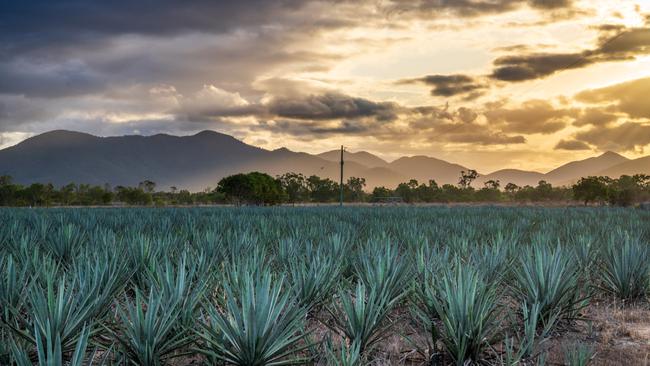
“I think Aussies love an underdog. That’s a big part of it,” Trent said.
“The Queensland community has been just phenomenal. And the fact that we won gold in San Francisco and also London, they’re two of the most important shows in the spirit circuit, it’s like winning the Golden Globes and the Oscars in the same year. It’s hugely important, from a credibility standpoint, particularly when you talk about North American. Like these guys are legitimate.”




